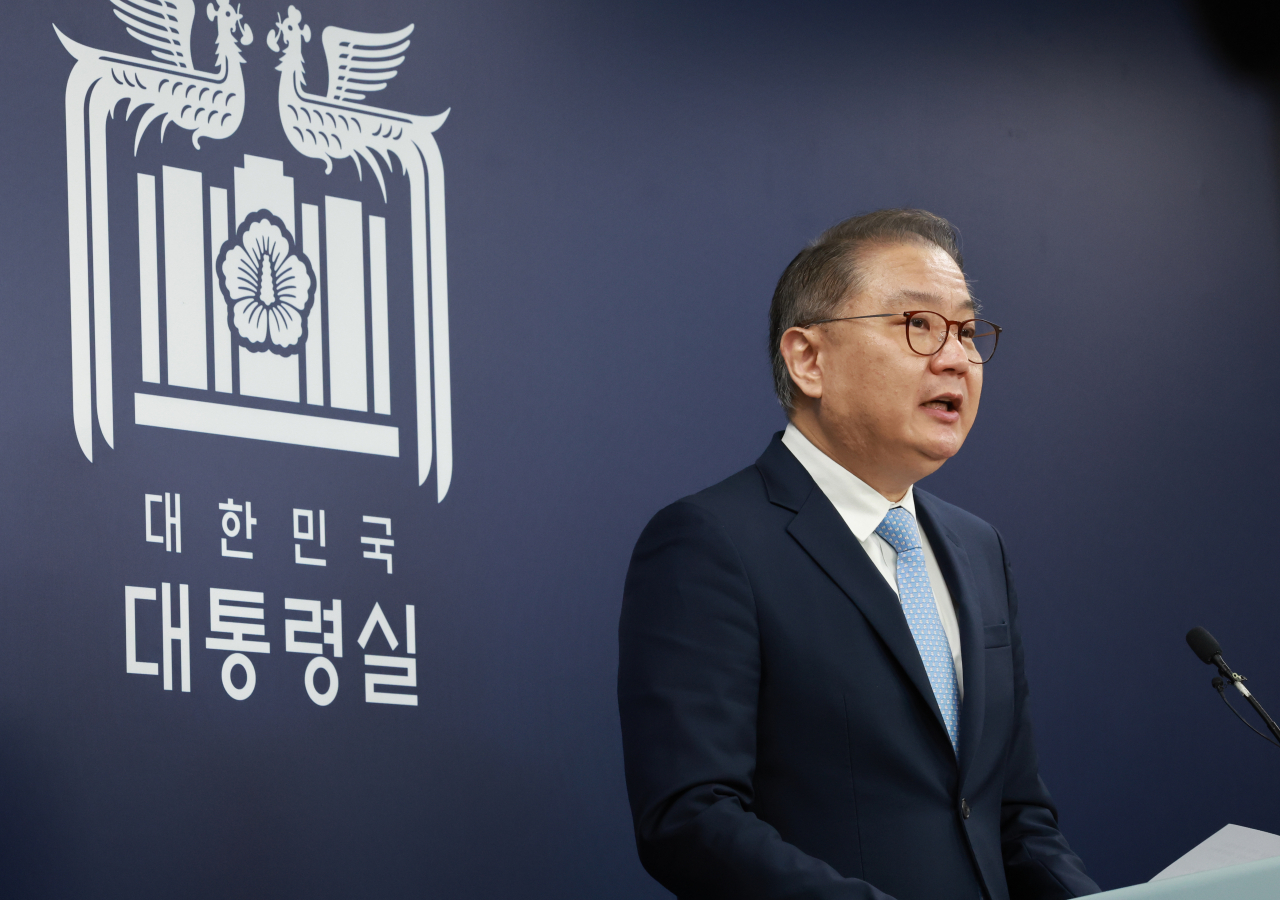Seoul eyes 'all-time high' R&D budget for 2025
Scientists urged to disclose research findings, funding to public for transparency
By Son Ji-hyoungPublished : April 3, 2024 - 14:31

South Korea's budget related to technology research and development for 2025 will "reach an all-time high," reversing course from the 14.7 percent budget cut for this year's R&D projects that baffled scientists here, according to the presidential office on Wednesday.
Park Sang-ook, senior presidential secretary for science and technology, said in a press briefing in Seoul that Korea will "exponentially increase" the R&D budget, though he did not elaborate on the specifics.
This echoed President Yoon Suk Yeol's pledge in the New Year's address in January that his administration will "greatly increase the R&D expenditure during his presidency." This followed an abrupt budget cut by 14.7 percent to 26.5 trillion won ($19.7 billion) for this year. It marked the first R&D budget contraction for South Korea in 33 years.
In February, Shin Min-gi, a graduate of the Korea Advanced Institute of Science and Technology, protested the budget cut in scientific technology R&D when Yoon was delivering a commencement speech at an indoor venue of the campus in Daejeon. Shin was forced out of the hall while security covered his mouth and lifted his arms and legs.
According to the presidential office, it would take "a few more months" to finalize the degree of the R&D budget boost, as it takes some time to gauge demand from different ministries.
A source from Yoon's office who declined to be named said that the budget cut was meant to address "inefficiency in the government's R&D support" through research reform.
As part of the reform, Park said scientists will be mandated to disclose research findings and funding they had received, so that the public can access the disclosures. Park said the measure will help "nurture the trust-based environment" regarding government-backed projects.
This will be part of research reform nationwide by reducing red tape, boosting transparency and seeking cooperation with international scientists. Park said the reform will continue to be implemented in parallel with the R&D budget hike because South Korea must adapt to the "unprecedentedly fast-paced technology development of the world."
In line with the move, Seoul is poised to spend 1 trillion won on "world-first" research and development projects in 2025 to allow scientists in the country to embrace the first-mover spirit and gain an upper edge in the world's technology race, a presidential aide said Wednesday.
"Next year, 1 trillion won will be spent on R&D projects deemed innovative and challenging to spur a paradigm shift ditching the fast follower-style, ingraining the DNA of innovation in the state-backed R&D scene," said Park, the senior presidential secretary, in a press briefing at the presidential office in Seoul.
Eligible for the newly established funding mechanism are six state-backed advanced research projects in four different ministries aimed at achieving trailblazing scientific milestones, according to a source from the presidential office.
Among them are the National Science Challenge Initiatives of the Science Ministry; the Industrial Technology Alchemist project by the Industry Ministry; a project to establish a Korean equivalent to the Advanced Research Projects Agency for Health in the United States; and the Future Challenge Defense Technology R&D project by the Defense Acquisition Program Administration.
Park said the budget to support national scientific breakthroughs will further expand to the level of 5 percent of the nation's total R&D budget.



















![[Today’s K-pop] Treasure to publish magazine for debut anniversary](http://res.heraldm.com/phpwas/restmb_idxmake.php?idx=642&simg=/content/image/2024/07/26/20240726050551_0.jpg&u=)